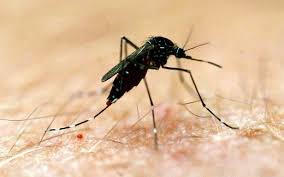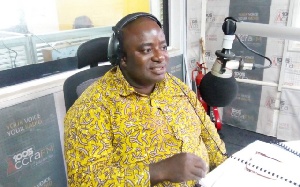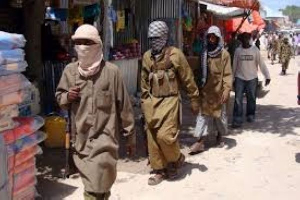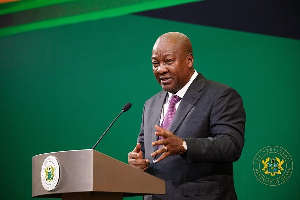By Samuel Adadi Akapule
In spite of numerous interventions from the Government and donor partners, malaria still remains the leading cause of morbidity and mortality in the country and if pragmatic steps are not taken to help tackle the problem, it could affect Ghana’s efforts to attain the Sustainable Development Goals (SDGs). For instance, it is on records that Ghana records 3.5 million cases of malaria annually. Even though statistics from the National Malaria Control Programme (NMCP) have established that malaria-related mortality has been declining for the past five years, the incident is still very alarming and could undermines Ghana’s efforts in the achievement of the SDGs.
The statistics from the NMCP indicates that Ghana recorded in 2010, 3,882 deaths caused by malaria. The figure declined to 3,197 deaths in 2011 and further reduced to 2,799 in 2012. In 2013, 2,985 deaths were recorded, reducing to 2,200 in 2014 and 2,137 in 2015.
However, in the first half of the 2016 year, statistics from the NMCP also revealed that, approximately 26,922 suspected cases of malaria were recorded daily in the country’s health facilities during the period. During the semester under review, deaths attributed to malaria by clinicians in the health facilities in the country were 685. Out of these malaria attributable deaths, 290 occurred among children under-5 years in 2016 compared to 385 in 2015.
Malaria, according to Health Experts, remains a deadly disease and is the leading cause of childhood death worldwide and affects and kills those of all ages when it resurges.
“In particular, malaria is an important cause of anaemia, which dramatically compromises the health of children and pregnant women. In high transmission settings the disease is responsible for a high proportion of maternal and neonatal deaths. Contracting malaria in pregnancy can lead to haemorrhage, spontaneous abortion, neonatal death and low birth weight.
Malaria in pregnancy interventions can cut severe maternal anaemia by 38%, reduce low birth weight in neonates by 31%, and decrease neonatal mortality rates by as much as 61%.5.This enables mothers to stay well and thus be able to care for their babies and strongly increases the newborn’s chances of survival” Dr Kofi Issah, Upper East Regional Director indicates.
Perhaps it is based on the magnitude of the problem that the 2016 District Assembly Common Fund (DACF) Guideline allocated the 0.5 per cent of the DACF for Metropolitan, Municipal and District Assemblies (MMDAs) in the year 2016 across the country for Malaria Control activities.
The question one may pause to ask viewing the magnitude of the problem, is the 0.5 per cent of the DACF enough to help tackle the issue? It should be made clear that malaria control activities are largely donor funded. However, with the current middle income status of the country, donor funding is dwindling and something need to be done about that.
Whilst some stakeholders at a -just- ended separate fora, organized by the Institute for Social Research and Development (ISRAD)-Ghana, a Non-Governmental Organization , in the Bolgatanga, Bongo, Kassena-Nankana West and Kassena-Nankana Municipal , Talensi and the Nabdam Districts of the Upper East Region are calling for Administrator of the DACF to increase the funding for the malaria control activities, others are calling for a separate account to be created solely for the activities of malaria control.
The participants including the head of decentralized departments of the Assemblies, District Health Directors, traditional and religious rulers, the media among others, drummed home the need for the present Government and the Administrator of the DACF to heed to their call.
The Stakeholders fora was on the “Advocacy for Resources for Malaria Stoppage Initiative (ARMS)”Project, being implemented by the (ISRAD) – Ghana in the Bolgatanga Municipal, Bongo District, Kassena Nankana Municipal and the Kassena-Nankna West and Nabdam Districts with funding from the UKaid.
Advancing their argument further, the stakeholders, stated that as it stood now, the 0.5 per cent of the DACF are lumped with other accounts of the Assembly anytime the funds are released by the Secretariat, making it difficult for most of the Assemblies to release the funds to the GHS to help fight malaria.
The Regional Coordinator of ISRAD- Ghana, Mr Abdul-Razak Issah, who explained that the ARMS Project had the goal to contribute to the reduction of malaria in the country, also mentioned that among its objectives is to increase the diagnosis of malaria before treatment and increase local government funding to reduce malaria cases
There is the urgent need for all stakeholders including the Government, corporate organizations, traditional and religious rulers, the media among others to join forces in tackling the malaria pandemic to enable Ghana make significant impact in the achievement of the SDGs.
Some of the stakeholders at one of the forums organized in Bolgatanga samuelakapule@yahoo.com
Opinions of Monday, 27 February 2017
Columnist: Akapule, Samuel Adadi
Guideline for malaria control and matters arising
 File photo
File photo














